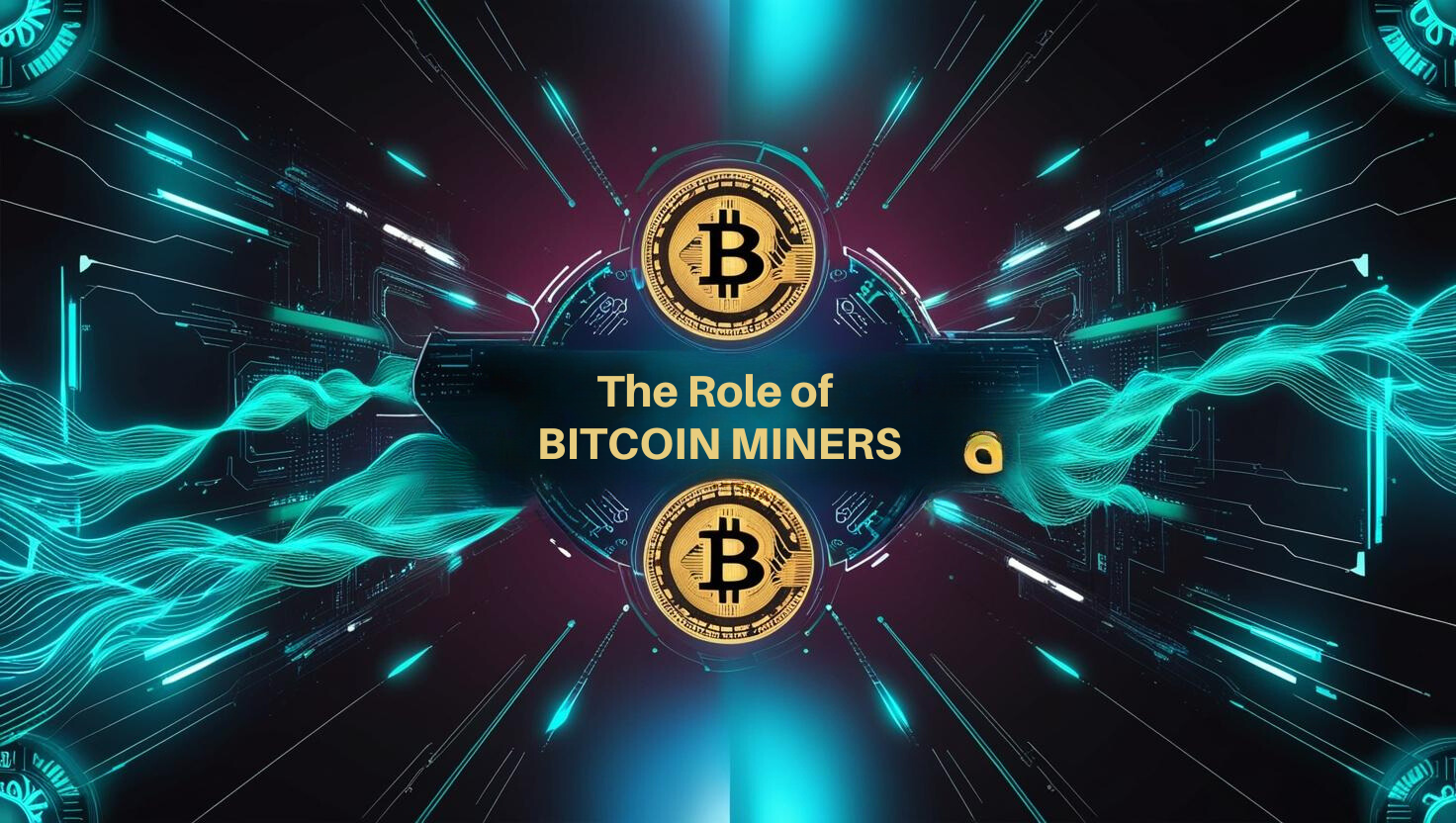The Role of Bitcoin Miners After All Bitcoins Are Mined

Introduction
Bitcoin has a fixed supply of 21 million coins, and once all these coins have been mined, no new bitcoins will be created. As of 2024, around 19.5 million bitcoins have already been mined, leaving only about 1.5 million to be discovered. Given the finite nature of Bitcoin’s supply, many wonder what will happen to miners when the last bitcoin is mined. What role will they play in the network, and how will the dynamics of the Bitcoin ecosystem change? This article explores the future of Bitcoin mining after all 21 million bitcoins have been mined.
Understanding Bitcoin Mining
Before diving into the role of miners after all bitcoins are mined, it's essential to understand how Bitcoin mining works today. Miners perform two critical functions:
- Securing the Network: Miners validate and secure transactions by solving complex cryptographic puzzles through the Proof of Work (PoW) consensus mechanism. This process ensures that only legitimate transactions are added to the blockchain.
- Receiving Block Rewards: Miners are incentivized with rewards for their work. Currently, miners receive two types of rewards:
- Block Subsidy: A fixed amount of newly minted bitcoins (currently 3,125 BTC per block, which halves approximately every four years).
- Transaction Fees: A small fee paid by users to prioritize their transactions and get them included in a block.
The 21 Million Supply Cap
Bitcoin’s supply cap of 21 million coins is a fundamental part of its design, programmed into the Bitcoin protocol by its creator, Satoshi Nakamoto. This cap ensures that Bitcoin remains a scarce resource, which contributes to its value as a deflationary asset.
As new bitcoins are mined, the block reward decreases over time through a process called the halving, which occurs approximately every four years. The block reward started at 50 BTC per block in 2009 and has since been halved multiple times to its current level of 3.125 BTC. Eventually, by around the year 2140, the last bitcoin will be mined, and the block subsidy will effectively reach zero.
What Happens When All Bitcoins Are Mined?
When all bitcoins are mined, miners will no longer receive the block subsidy. However, mining will not stop. Instead, miners will continue to play a crucial role in the network by securing it and validating transactions. The primary source of their revenue will shift from block rewards to transaction fees. Let’s examine the future role of miners in more detail:
1. Transaction Fees as the Main Incentive
Once the block subsidy reaches zero, miners will rely solely on transaction fees as their reward for securing the network and confirming transactions. In the current system, transaction fees are relatively small compared to block rewards, but they are expected to become a more significant part of miners’ income over time. As Bitcoin becomes more widely used and the number of transactions increases, the cumulative value of transaction fees could provide enough incentive for miners to continue participating in the network.
The Importance of Transaction Fees
- High Demand for Block Space: Bitcoin blocks have limited space (around 1MB per block), and as Bitcoin adoption grows, more users will compete for this space by offering higher transaction fees. This competition will drive up fees, creating a market-driven incentive for miners to include transactions in blocks.
- Scalability Solutions: Bitcoin’s scalability improvements, such as SegWit (Segregated Witness) and the Lightning Network, are designed to help process more transactions off-chain or more efficiently, reducing congestion on the main blockchain. While these solutions may lower fees for individual transactions, the increased overall transaction volume could still provide ample fee-based rewards for miners.
2. Network Security and Decentralization
Miners are essential to Bitcoin's Proof of Work (PoW) consensus mechanism, which ensures the security and integrity of the network. After the final bitcoin is mined, miners will still need to solve cryptographic puzzles to add new blocks to the blockchain and validate transactions. This process prevents double-spending and protects the network from malicious actors.
Without block rewards, the economic security model will rely entirely on transaction fees. The continued participation of miners in the network is vital to prevent 51% attacks, where a miner or group of miners gains control of over 50% of the network’s hashrate, potentially allowing them to manipulate the blockchain. To maintain decentralization and security, transaction fees must be sufficient to motivate miners to continue their work.
3. Potential Changes to the Network
As the transition to fee-based mining approaches, there may be several changes to the dynamics of the Bitcoin network:
- Fee Market Dynamics: With no new bitcoins being created, the focus will shift entirely to the transaction fee market. Users will need to pay higher fees to have their transactions processed quickly during periods of high network demand. Miners will prioritize transactions based on the fees offered, creating a competitive fee environment.
- Technological Improvements: As the reliance on transaction fees grows, there may be advancements in how the Bitcoin network operates to make mining more efficient and profitable. For example, the implementation of new consensus mechanisms or improvements to existing ones may emerge, ensuring that miners remain incentivized to secure the network.
- Energy Efficiency Focus: Bitcoin mining has often been criticized for its energy consumption. After the final bitcoin is mined, miners will need to optimize their operations further to remain profitable, potentially leading to an increased focus on energy-efficient hardware and sustainable mining practices. This could also spur investment in renewable energy sources to power mining operations.
4. Miners as Gatekeepers of Transaction Validity
Even after all bitcoins are mined, miners will continue to play a critical role in determining which transactions are added to the blockchain. They will act as gatekeepers, verifying the validity of transactions and ensuring that only legitimate ones are included in blocks. This function is essential to the ongoing health of the Bitcoin network.
- Increased Competition for Block Inclusion: As the fee market becomes the primary incentive for miners, they may become more selective about which transactions they include in blocks. Users offering higher fees will likely have their transactions processed faster, while lower-fee transactions may face longer delays, particularly during periods of high demand.
What If Miners Leave the Network After All Bitcoins Are Mined?
If transaction fees prove insufficient to motivate miners, there could be a potential decrease in the number of active miners. A decline in mining participation could lower the network’s total hashrate, potentially making it more vulnerable to attacks. However, Bitcoin's difficulty adjustment algorithm is designed to account for changes in mining participation. If miners leave, the difficulty of mining new blocks will decrease, making it easier for the remaining miners to continue validating transactions.
Despite this built-in adjustment mechanism, it is vital for transaction fees to provide enough incentive for miners to maintain a secure and decentralized network in the absence of block subsidies.
Conclusion
When the last bitcoin is mined, the role of miners will shift, but their importance to the Bitcoin network will not diminish. They will continue to secure the network, validate transactions, and ensure its decentralized nature. However, instead of earning block rewards, miners will rely solely on transaction fees as their primary incentive.
The transition to a fee-based mining model presents challenges, particularly in ensuring that transaction fees are sufficient to incentivize miners to maintain network security. Nevertheless, with continued adoption, technological improvements, and a growing number of transactions, it is expected that the network will continue to thrive even after the last bitcoin has been mined.
Ultimately, Bitcoin miners will remain indispensable in maintaining the integrity and security of the world’s first and most valuable cryptocurrency, even as the landscape of mining rewards evolves.
This article presented by Loka Mining.
Loka is revolutionizing the Bitcoin mining ecosystem by directly connecting investors with Bitcoin miners through a decentralized mining pool and an upcoming permissionless forward hashrate marketplace protocol.
Loka enables investors to get Bitcoin at lower than market price without centralized & counter-party risks, and Bitcoin miners to access capital efficient financing and hedge their risk exposure by selling their future mining rewards.
Find out more about loka in https://lokamining.com — or access our mining pool aggregator on https://pool.lokamining.com
